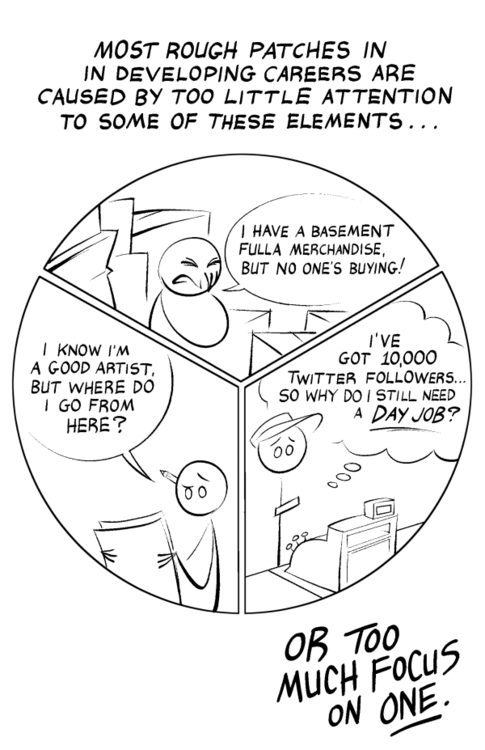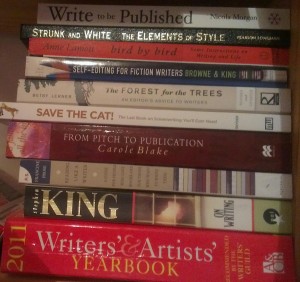All book links are affiliate links.
TOP FIVE BOOKS
- Growing Gills by Jessical Abel
- Big Magic by Elizabeth Gilbert
- 2k to 10k: Writing Better, Faster and More of What You Love by Rachel Aaron. This is another one I come back to a lot. Based on Rachael’s blog post, this book expands on her methods in ways that really click with me. I still swear by her three core requirements: Knowledge, Time and Enthusiasm.
- 5,000 Words Per Hour by Chris Fox
- Take Off Your Pants!: Outline Your Books for Faster, Better Writing by Libbie Hawker. This is one of my favourite quick reads for plotting ideas and structure advice.
More Favourite Reads
Save the Cat! by Blake Snyder (Reviewed here). An in-depth guide to plot structures and beat sheets.
Romancing the Beat by Gwen Hayes
Write To Be Published by Nicola Morgan. A from draft-to-publication guide with a focus on the UK industry.
Dear Agent by Nicola Morgan (Reviewed here). All about writing a UK-format query letter.
Write a Great Synopsis by Nicola Morgan (Reviewed here). Advice on writing a synopsis, which is necessary when querying agents.
Bird by Bird by Anne Lamott. This is a book about the craft of writing, rather than the industry, and is great inspiration from any struggling writer.
From Pitch to Publication by Carole Blake. Another UK-focused book by a leading UK literary agent. A bit dated now, but still a great read.
On Writing by Stephen King. The industry advice in this is well out of date now, but the writing advice still holds true. A very inspiring book.
Eats, Shoots & Leaves by Lynne Truss
Eat That Frog!: Get More of the Important Things Done – Today by Brian Tracy. Not a writing advice book, but bloody useful for task management.
A Style Guide of your choice. I use The Elements of Style by Strunk and White
The Writer & Artists Yearbook. This used to be a standard tool but these days it gets outdated fast. Check the rep of every agent before submitting.
Not-My-Cuppa-Tea Books
Books that didn’t stick with or resonate with me, but which others enjoy and I might enjoy at a different point in my life.
Rock Your Plot and Rock Your Revisions by Cathy Yardley. A guide to first drafts and a guide to revising. I liked these at the time but they didn’t stick in my memory.
Write Your Novel From the Middle: A New Approach for Plotters, Pantsers and Everyone in Between by James Scott Bell
Wonderbook by Jeff VanderMeer. An absolutely massive book filled with essays and art about writing from absolutely every angle. Hugely inspiring (even if it didn’t click with me).
The Anatomy of a Story by John Truby
Self-Editing for Fiction Writers by Browne & King
The Forest for the Trees: An Editor’s Guide to Writing by Betsy Lerner
Reading Like A Writer by Francine Prose
Story Engineering by Larry Brooks
Currently in my To-Read Pile
Story Genius
Story Grid
Save the Cat! Strikes Back by Blake Snyder
Structuring Your Novel by K.M. Weildland
Deep Work by Cal Newport
Get Started in Writing Young Adult Fiction by Juliet Mushens: Advice on writing YA by a leading literary agent.
Steering the Craft by Ursula K Le Guin: Craft advice, with a focus on techniques like POV, tense and pacing, from a legendary fantasy/sci-fi author.
Book in a Month by Victoria Schmidt: For writers looking for tips on how to outline/plot a novel.
Online Courses
“How To Revise Your Novel” by Holly Lisle. A half-hearted recommendation here, because I’m still not sure I enjoyed this one. The website is ridiculously glitchy and unstable, and I’m not sure the high price tag reflects what a maddening user experience the course website provides. Paid course, link is an affiliate link.
Need Motivation/Tough Love?
Ira Glass on Storytelling
“What nobody tells people who are beginners — and I really wish someone had told this to me . . . is that all of us who do creative work, we get into it because we have good taste. But there is this gap. For the first couple years you make stuff, and it’s just not that good. It’s trying to be good, it has potential, but it’s not.
But your taste, the thing that got you into the game, is still killer. And your taste is why your work disappoints you. A lot of people never get past this phase. They quit. Most people I know who do interesting, creative work went through years of this. We know our work doesn’t have this special thing that we want it to have. We all go through this. And if you are just starting out or you are still in this phase, you gotta know it’s normal and the most important thing you can do is do a lot of work. Put yourself on a deadline so that every week you will finish one story.
It is only by going through a volume of work that you will close that gap, and your work will be as good as your ambitions. And I took longer to figure out how to do this than anyone I’ve ever met. It’s gonna take awhile. It’s normal to take awhile. You’ve just gotta fight your way through.” — Ira Glass
Writing Dreams and Harsh Realities by Tim Waggoner
Why Being a Writer is an Exercise in Cognitive Dissonance by Kameron Hurley
How a Writer Quiets their Self-Doubt by Chuck Wendig
Here’s How to Finish That Fucking Book by Chuck Wendig
Control What You Can Control by Chuck Wendig
And an editing staple, Kate’s Editing Checklist.
Query Exercises from various members of AbsoluteWrite
My Advice
- My Guide to Getting a UK Literary Agent
- Getting Published: The Process
- 5 Ways to Get Ideas
- 3 Golden Rules to Avoid Writer’s Block
- How I Get Over Writing Stress and Writer’s Block
Website Recommendations
- AbsoluteWrite Forums
- Writing Excuses (particularly Season 10, a book-writing masterclass)
- Literary Agent Janet Reid’s Blog & Query Shark
- Literary Rejections (lists literary agencies across the world)
- Emergents Creative Community Scotland
Words of Advice
If you have worries about word count, check out Colleen’s Lindsay’s “On word counts and novel length” and The Writer’s Digest “Definite Word Count Guide”.
John Scalzi: 10 Things Teenage Writers Should Know About Writing, Advice to New Writers About Money, Practical Writing Advice, More Practical Writing Advice
Neil Gaiman: Advice to Authors, 8 Rules of Writing, On Writer’s Block (Reposted here)
Nathan Bransford: How to Write A Novel, How I Edit, How A Book Gets Published, and more. Check out his ‘PUBLISHING ESSENTIALS’ sidebar.
Chuck Wendig: Chuck’s “25 Things” lists are helpful for writers at all stages.
Anne Mini: Has a ridiculous amount of detailed, comprehensive writing advice on her blog Author! Author!
Josh Vogt: Check out his massive Writer’s Resources Toolbox.
The T Party Writers Group has a list of UK literary agents.
The BookEnds Literary Agency blog has a lot of posts covering most aspects of the industry from an agent’s viewpoint — check the site’s sidebar for popular posts.
The AbsoluteWrite Forums are home to thousands of successful and friendly writers, and contains a huge amount of advice. There’s also the VerlaKay Blue Boards which focusses on children’s writers and illustrators.
Must-Watch Videos
Neil Gaiman answers the question “Are there already too many writers out there?”
Neil Gaiman’s Commencement Speech
Elizabeth Gilbert’s talk on “Your elusive creative genius”
Finally, A Must-Read Comic
Iron Spike’s “This is Everything I Know”.

